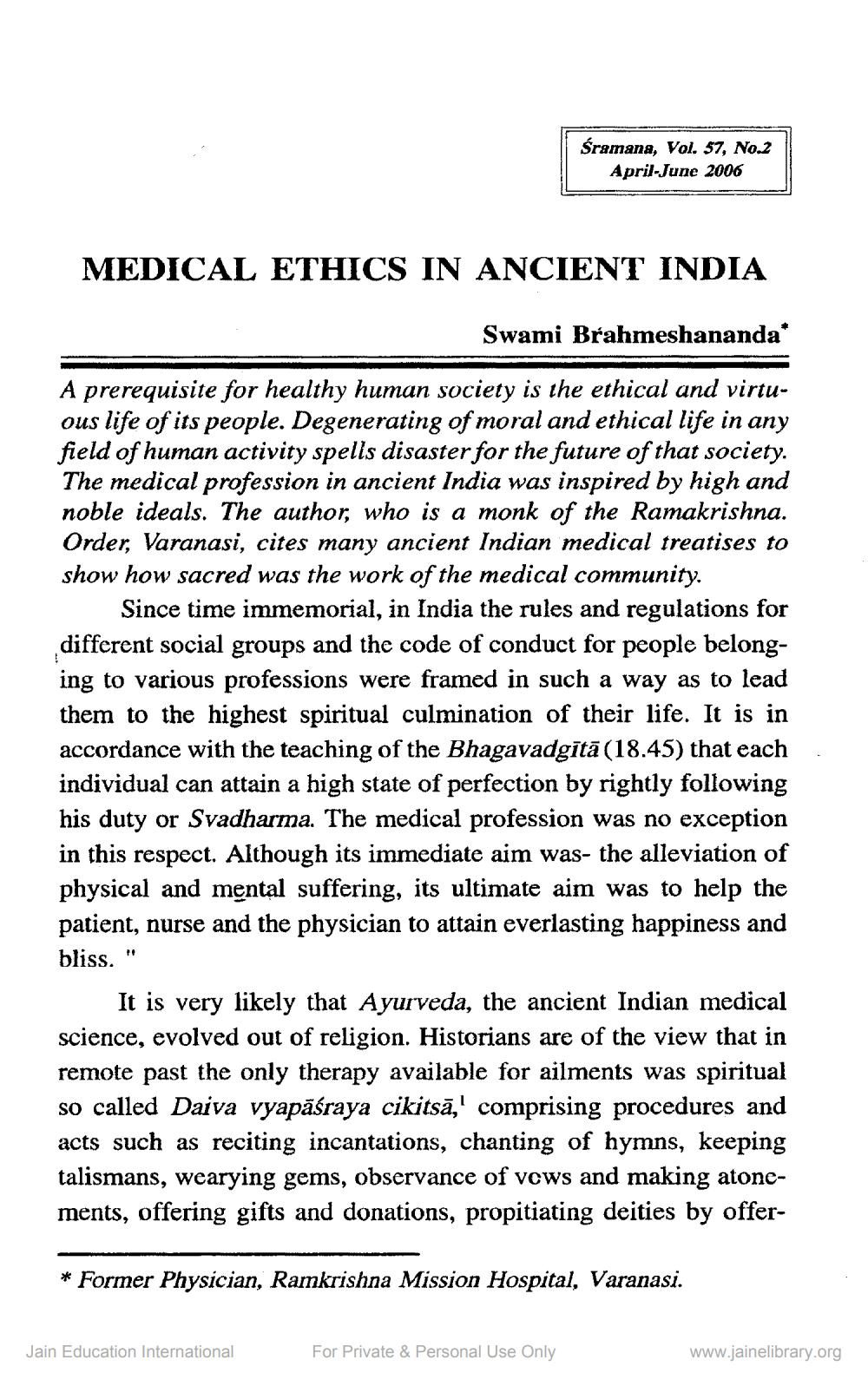________________
Śramana, Vol. 57, No.2
April-June 2006
MEDICAL ETHICS IN ANCIENT INDIA
Swami Brahmeshananda*
A prerequisite for healthy human society is the ethical and virtuous life of its people. Degenerating of moral and ethical life in any field of human activity spells disaster for the future of that society. The medical profession in ancient India was inspired by high and noble ideals. The author, who is a monk of the Ramakrishna. Order, Varanasi, cites many ancient Indian medical treatises to show how sacred was the work of the medical community.
Since time immemorial, in India the rules and regulations for different social groups and the code of conduct for people belonging to various professions were framed in such a way as to lead them to the highest spiritual culmination of their life. It is in accordance with the teaching of the Bhagavadgītā (18.45) that each individual can attain a high state of perfection by rightly following his duty or Svadharma. The medical profession was no exception in this respect. Although its immediate aim was- the alleviation of physical and mental suffering, its ultimate aim was to help the patient, nurse and the physician to attain everlasting happiness and bliss."
It is very likely that Ayurveda, the ancient Indian medical science, evolved out of religion. Historians are of the view that in remote past the only therapy available for ailments was spiritual so called Daiva vyapaśraya cikitsā,' comprising procedures and acts such as reciting incantations, chanting of hymns, keeping talismans, wearying gems, observance of vows and making atonements, offering gifts and donations, propitiating deities by offer
* Former Physician, Ramkrishna Mission Hospital, Varanasi.
Jain Education International
For Private & Personal Use Only
www.jainelibrary.org




